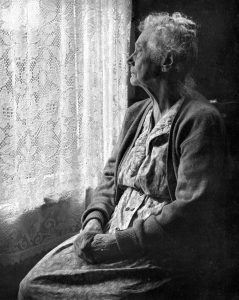According to statistics, the scourge of elder abuse affects 4% of the elder population every year, and is a rising trend. But less than 1 in 14 cases of elder abuse is reported to law enforcement.
What is Elder Abuse?
Any action that victimizes an elderly person to the benefit or gain of another person is defined as elder abuse. Elder abuse may manifest in a variety of ways from a financial or investment scam to physical abuse. It can either be deliberate or be caused by incompetence of a nursing home or elder care facility.
Any person acting as a caregiver for an elderly person should be on the lookout for possible elder abuse committed by family members or outsiders. Generally, people over 65 years of age are subject to physical or mental illness, social isolation, life transitions, and cultural bias, which makes it very easy to manipulate them.
The 5 most common types of abuse perpetrated on elder citizens are:
- Physical abuse
- Sexual abuse
- Psychological abuse
- Financial abuse
- Neglect or abandonment
Both federal and state laws mandate that the types of professionals providing caregiving and healthcare services to elderly people to report any suspicion of possible elderly abuse to law enforcement. This includes physicians, visiting nurses, dentists, social workers, and peace officers to keep the identity of the person filing the suspicious elder abuse complaint confidential.
After reporting the abuse, be sure to speak with a professional personal injury attorney to ensure that the individual is compensated fairly for all abuse suffered.
A brief summary of the different types of elder abuse are provided below:
Physical Abuse
The use of physical force that results in bodily injury, physical pain or impairment can be described as physical abuse. This type of abuse can include striking, hitting, beating, pushing, shoving, shaking, slapping, kicking, pinching and burning. Some telltale signs of elder physical abuse can be signs of bruising, burns, abrasions or fractures. Such improbable signs should always be questioned.
Sexual Abuse
Although it is sad and disturbing to think of yet elder sexual abuse does occur. Some telltale signs would include genital or anal infections, difficulty walking or sitting, or bilateral bruising of inner thighs.
Psychological Abuse
Subjecting an elderly person to psychological abuse is extremely cruel. If someone threatens an elder or speaks poorly of them it can be an indication of elder psychological abuse. But it is difficult to prove because the symptoms may have been caused by other physical, mental, or aging problems.
Financial Abuse
The illegal or improper use of an elder’s assets is called financial abuse. All of the examples below include actions of elder financial abuse:
- Cashing an elder’s social security or pension checks without permission
- Taking money or property from them
- Coercing or deceiving the elder into parting with property or signing documents
- Diverting guardianship or conservatorship assets.
Financial abuse constitutes 12% of all abuse perpetrated against elderly citizens in the United States.
Neglect Or Abandonment
The failure of a person in charge of providing care to an elder to adequately perform their obligations is termed as neglect or abandonment. Acts such as failure to provide medicines, hygiene, food or personal safety fall under this category of abuse. Skin disorders, untreated medical problems, poor hygiene, bedsores, malnutrition, sunken cheeks or eyes, and lack of clean clothing are all symptoms of neglect.
If you feel that your parent or another elder citizen is a victim of some form of abuse, it is important to contact law enforcement and register a complaint of suspicion. It is also advisable to seek the services of a Fair Oaks elder law attorney to safeguard the rights of your parents or other elderly loved ones.





